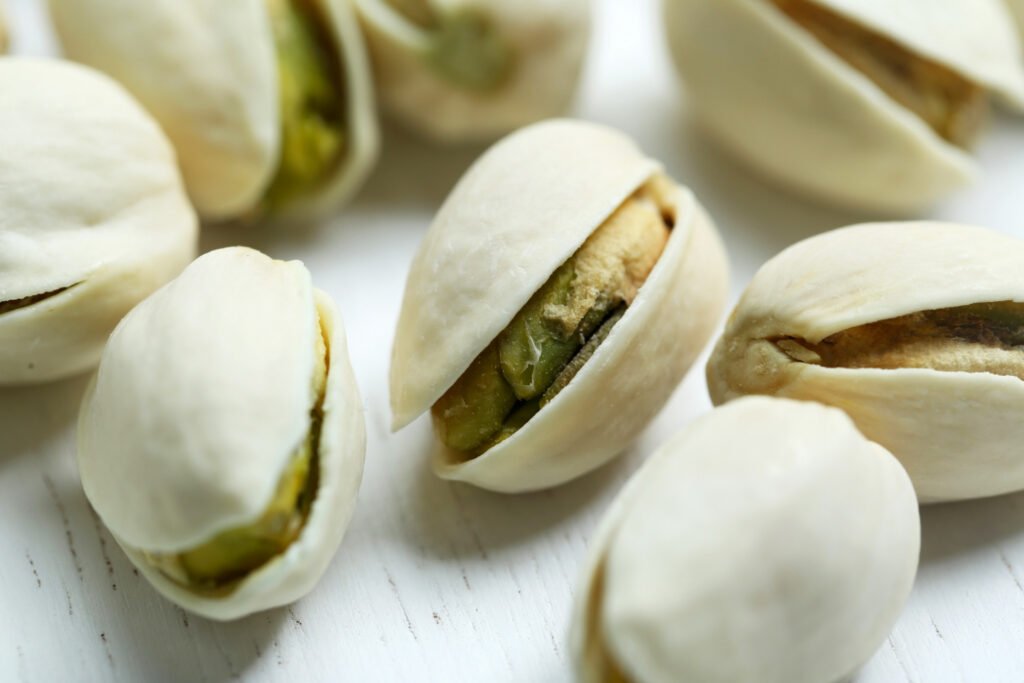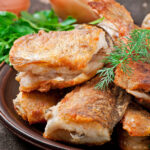
Overview
High blood pressure, or hypertension, is a common condition affecting millions worldwide. It can increase the risk of heart disease, stroke, and kidney failure if left unmanaged. Fortunately, one of the most effective ways to control blood pressure is through diet. This guide outlines the foods that can naturally lower blood pressure and those to avoid to maintain a healthy heart.
What Is Hypertension and Why Is It Dangerous?
Hypertension occurs when the force of the blood against your artery walls is consistently too high. This pressure can cause significant strain on your heart, leading to complications like heart disease, stroke, and even heart failure. Maintaining a balanced diet can be a powerful tool in preventing and controlling high blood pressure.
Top 12 Foods to Lower Blood Pressure Naturally
1. Citrus Fruits
Citrus fruits, including oranges, lemons, and grapefruit, are known for their ability to lower blood pressure. Rich in vitamins, minerals, and plant compounds, these fruits help reduce inflammation and improve heart health. Research shows that eating citrus fruits regularly can help reduce blood pressure, especially systolic pressure (the top number in a reading).
However, those taking blood pressure medications should be cautious about consuming grapefruit, as it can interfere with how the body processes certain drugs. It’s best to consult your doctor before adding grapefruit to your diet if you are on medication.
2. Fatty Fish
Salmon, mackerel, sardines, and other fatty fish are excellent sources of omega-3 fatty acids, which are critical for heart health. Omega-3s reduce inflammation and decrease the production of oxylipins, which can constrict blood vessels and increase blood pressure. Studies have shown that regular consumption of omega-3s, especially from fish, can lead to significant reductions in both systolic and diastolic blood pressure.
A good serving size is about 3.5 ounces of fatty fish, two to three times a week, which can provide the recommended amount of omega-3 fats for heart health.
3. Olive Oil
A staple in the Mediterranean diet, olive oil is rich in polyphenols and omega-9 fatty acids, both of which have been shown to lower blood pressure. Polyphenols are powerful antioxidants that improve the health of blood vessels and reduce oxidative stress. Studies have found that people who consume olive oil regularly experience better blood pressure control compared to those who do not.
Opt for extra virgin olive oil for the most health benefits, as it is less processed and retains more of the beneficial nutrients.
4. Leafy Greens
Leafy greens such as spinach, kale, arugula, and Swiss chard are high in nitrates, which help relax blood vessels, improving blood flow and reducing blood pressure. These vegetables are also excellent sources of potassium, a mineral that counteracts the effects of sodium, further helping to lower blood pressure.
Incorporating one or two servings of leafy greens daily can significantly contribute to better blood pressure control.
5. Carrots
Crunchy and delicious, carrots contain compounds like potassium and antioxidants that help in lowering blood pressure. Consuming raw carrots has been associated with reduced systolic blood pressure levels. The fiber content in carrots also helps improve cholesterol levels, which is essential for overall cardiovascular health.
6. Berries
Blueberries, strawberries, and raspberries are rich in flavonoids, especially anthocyanins, which have been shown to reduce blood pressure. These compounds improve the function of the blood vessels and help to dilate them, allowing blood to flow more easily
Related: how to control high blood pressure through diet
A study found that people who consumed berries regularly had a lower risk of developing hypertension than those who didn’t. Adding berries to your breakfast or as a snack can be a tasty way to manage blood pressure.
7. Beets
Beets are high in nitrates, which the body converts into nitric oxide. Nitric oxide helps relax and dilate blood vessels, improving blood flow and lowering blood pressure. Drinking beetroot juice has been shown to have an immediate impact on reducing systolic blood pressure.
You can enjoy beets in salads, juices, or roasted for a flavorful addition to your diet.
8. Garlic
Garlic has long been recognized for its medicinal properties, particularly in managing heart health. Garlic contains sulfur compounds, such as allicin, which help increase nitric oxide levels in the body. This, in turn, helps relax blood vessels and reduce blood pressure. Including fresh garlic in your meals is a simple yet effective way to benefit from its heart-healthy properties.
9. Yogurt
Unsweetened, low-fat yogurt is packed with calcium, potassium, and magnesium—key nutrients that help regulate blood pressure. The probiotics found in yogurt also improve gut health, which has been linked to lower blood pressure levels. Incorporating a serving of yogurt into your daily routine can help in maintaining healthy blood pressure.
10. Tomatoes
Tomatoes are high in lycopene, an antioxidant that has been associated with improved blood vessel function and lower blood pressure. Regular consumption of tomatoes and tomato-based products, such as tomato sauce or juice, can contribute to better cardiovascular health. However, it’s important to choose low-sodium versions of tomato products when possible.
Proven Approach to Lower Blood Pressure
The DASH (Dietary Approaches to Stop Hypertension) diet is widely recommended for people with hypertension. It emphasizes whole foods like fruits, vegetables, whole grains, lean proteins, and low-fat dairy products while limiting foods high in saturated fat, sodium, and added sugars. The DASH diet is rich in potassium, magnesium, and calcium, all of which help regulate blood pressure.
Some key features of the DASH diet include
- Fruits and Vegetables: At least five servings daily.
- Whole Grains: Prefer whole grains like brown rice, quinoa, and whole wheat.
- Low-Fat Dairy: Incorporate yogurt, milk, and cheese into your meals.
- Nuts and Seeds: A handful of nuts daily provides heart-healthy fats.
- Lean Proteins: Opt for chicken, turkey, and plant-based proteins like beans and legumes.
Foods to Avoid for Better Blood Pressure
Certain foods can raise blood pressure and should be avoided or limited, especially if you have hypertension. These include:
- Processed foods high in sodium, such as canned soups, chips, and frozen meals.
- Saturated fats found in butter, full-fat dairy, and fatty meats.
- Sugary drinks like soda and sweetened coffee.
- Alcohol: Excessive drinking can elevate blood pressure.
The Takeaway
Lowering blood pressure naturally through diet is one of the most effective ways to protect your heart and overall health. By incorporating heart-healthy foods like citrus fruits, fatty fish, leafy greens, and low-fat yogurt while avoiding processed foods high in sodium and saturated fats, you can maintain healthy blood pressure levels.
Pairing a healthy diet with regular exercise, stress management, and proper sleep can further enhance your ability to manage hypertension. Always consult with a healthcare provider before making significant changes to your diet, especially if you are on medication for high blood pressure. By taking these steps, you can reduce the risk of serious health complications and enjoy a healthier, happier life
Frequently Asked Questions
What are the best foods to lower blood pressure naturally?
The best foods to lower blood pressure naturally include:
- Citrus fruits like oranges, lemons, and grapefruit (but avoid grapefruit if on certain medications).
- Fatty fish such as salmon and mackerel, rich in omega-3 fatty acids.
- Leafy greens like spinach and kale, which are high in nitrates and potassium.
- Garlic for its sulfur compounds that increase nitric oxide levels.
- Berries, especially blueberries and strawberries, which are rich in flavonoids.
How does the DASH diet help lower blood pressure?
The DASH (Dietary Approaches to Stop Hypertension) diet helps lower blood pressure by focusing on nutrient-rich whole foods that are high in potassium, magnesium, and calcium. It emphasizes fruits, vegetables, whole grains, lean proteins, and low-fat dairy, while limiting sodium, saturated fats, and added sugars. This diet has been shown to significantly lower blood pressure levels in people with hypertension.
Which foods should I avoid to maintain healthy blood pressure?
To maintain healthy blood pressure, you should avoid or limit:
- Processed foods high in sodium, such as canned soups, chips, and frozen meals.
- Saturated fats found in fatty meats and full-fat dairy products.
- Sugary drinks like sodas and sweetened coffee.
- Excessive alcohol consumption, as it can raise blood pressure levels.
These dietary adjustments can significantly contribute to better blood pressure control and overall heart health.











